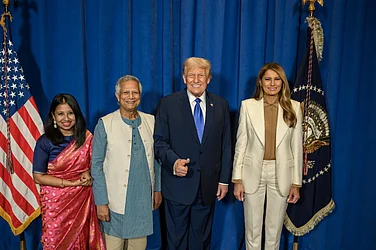Police in Kenya on Thursday have banned protests in the capital indefinitely citing a lack of leadership that would ensure peaceful protests.
The ban was announced hours before a planned protest later Thursday, in which demonstrators were expected to march to the president's office calling for his resignation over poor governance.
Acting police inspector general, Douglas Kanja, in a statement said the lack of leadership had “made it difficult to enforce safety protocols.”
Recent protests have left businesses counting losses after the lootings and burnings.
Protesters were yet to be spotted Thursday but major roads leading to the president's office remained barricaded by the police.
Kenya has seen a month of protests that started with calls for legislators to vote against a controversial finance bill that was proposing higher taxes amidst a cost-of-living crisis and ballooning public debt.
At least 50 people have died since the protests began on June 18, according to the Kenya National Commission on Human Rights.
President William Ruto said he would not sign the finance bill that was passed by parliament on June 25 — the day protesters stormed and burnt part of the building, prompting legislators to flee. The president last week dismissed almost his entire Cabinet and the attorney general, as demanded by protesters who accused ministers of incompetence, corruption and display of opulence.
Some businesses in Nairobi remained closed on a rainy morning in anticipation of planned protests Thursday. Police remained heavily deployed around the central business district patrolling the streets.
Police have been accused of brutality against protestors. On Friday, Japhet Koome, the former inspector general of police, resigned after calls from demonstrators for him to take responsibility for the shooting of protesters.
The Independent Policing Oversight Authority on Wednesday said it had forwarded four out of 10 cases of police brutality to the director of public prosecutions with recommendations.
The watchdog had recorded witness statements and directed that various police officers appear before it to give their testimony.
Kenyan police officers have in the past been accused of brutality and a contingent of 400 officers is currently in the Caribbean nation of Haiti leading a UN-backed police mission to combat gang violence.


























